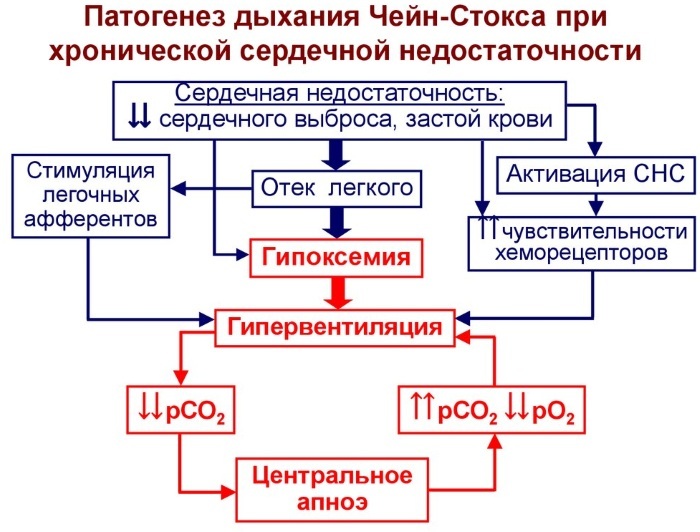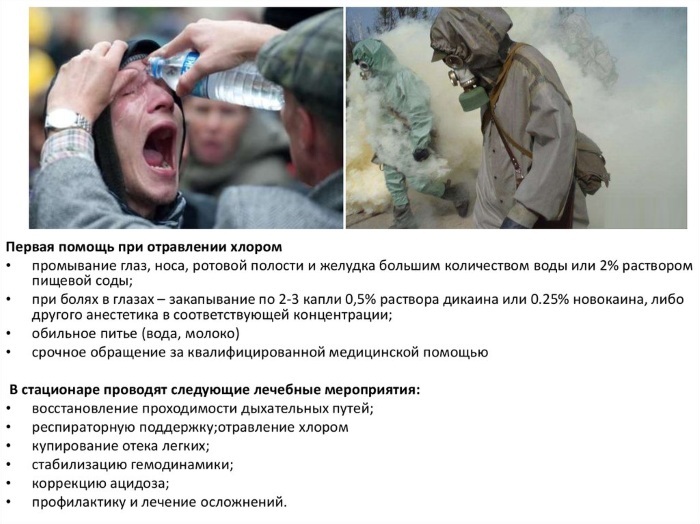CRB or C-reactive protein Is a specific protein of the immune system produced by liver cells. In the presence of inflammation in the body, which has arisen for any reason, the amount of CRP increases.
Record content:
- 1 How is C-reactive protein assay performed?
-
2 What does an increase in C-reactive protein mean in a biochemical blood test?
- 2.1 With infections
- 2.2 With cardiovascular diseases
- 2.3 With high blood pressure
- 2.4 With metabolic syndrome
- 2.5 With obesity
- 2.6 With a stroke
- 2.7 Sleep apnea
- 2.8 With lupus erythematosus
- 2.9 With rheumatoid arthritis
- 2.10 With gum disease (periodontal disease)
- 2.11 For inflammatory bowel disease
- 2.12 When tired
- 2.13 With depression
- 2.14 For macular degeneration
- 2.15 With dementia
- 2.16 With cancer
-
3 Gender and age-related causes of increased CRP
- 3.1 Among women
- 3.2 In men
- 3.3 In children
-
4 Factors that increase C-reactive protein levels
- 4.1 Sleep disturbance
- 4.2 Smoking
- 4.3 Saturated fatty acids and trans fats
- 4.4 Vitamin deficiency
- 4.5 Stress
- 4.6 Socio-economic factors
- 4.7 Substance abuse (drug addiction)
- 4.8 Height above sea level
- 4.9 Extreme cold
- 4.10 Hormones
- 5 Treating high CRP with drugs
- 6 Video about CRP
How is C-reactive protein assay performed?
Venous blood is used to determine the amount of C-reactive protein in the body.
The research is carried out as follows:
- The patient donates venous blood (always on an empty stomach).
- Then the blood is placed in a centrifuge, where the plasma is separated.
- After that, the biomaterial is sent to the laboratory, where it is examined by the immunoturbidimetric method.
- The amount of C-reactive protein in blood plasma is determined by measuring the amount of light absorbed by a preparation with a biomaterial.
- After the study, the laboratory assistant makes a conclusion, which is given to the patient.

Analysis for C-reactive protein takes no more than 1 day.
What does an increase in C-reactive protein mean in a biochemical blood test?
CRP is increased (the reasons for this may depend on age or gender) most often in any diseases accompanied by an inflammatory reaction in the body.
With infections
CRP is one of the main markers of inflammation in the body resulting from infection. When a foreign agent enters the body, the immune system begins to secrete specific cells to destroy it - thereby the process of increasing CRP begins.
With cardiovascular diseases
An increase in CRP is characteristic of atherosclerosis - narrowing of the lumen of blood vessels due to adhesion to them the inner walls of low and very low density lipoproteins ("bad" cholesterol), and particles of CRP. In addition, high levels of C-reactive protein are diagnosed in patients with coronary artery disease and cardiosclerosis due to vascular pathologies.
With high blood pressure
CRP is elevated (the causes of this condition may be due to other more severe diseases) in people with increased blood pressure due to inflammation and adhesion of cholesterol and protein particles leading to narrowing and hardening vessels.
Because of this, an increase in vascular pressure occurs and specific symptoms of hypertension appear:
- increased heart rate and heart rate;
- dizziness;
- noise in the head.
With metabolic syndrome
Metabolic syndrome combines obesity and dyslipidemia, in which there is an increase in the amount of CRP. With an increase in body mass index, waist circumference, glucose, insulin and low-density lipoprotein levels, an increase in CRP occurs due to systemic inflammation in the body.
With obesity
Obesity is accompanied by a high level of chronic inflammation in the tissues of the body, which is why patients have high and very high levels of C-reactive protein in the blood.
With a stroke
Stroke often becomes a consequence of atherosclerosis, accompanied by inflammation of the vascular walls, therefore, the level of C-reactive protein in the blood of patients is sharply increased immediately after an attack.

Also, a high level of CRP indicates the risk of developing stroke and heart attack in the future.
Sleep apnea
It has been found that people with apnea (a condition in which breathing stops during sleep) have an increased amount of C-reactive protein in the body. At the same time, many patients with apnea are obese and high in triglycerides, cholesterol and glucose in the blood - these conditions lead to systemic inflammation.
With lupus erythematosus
Lupus erythematosus is an autoimmune disease that affects almost all areas of the body. It is characterized by inflammatory changes in organ tissues and is accompanied by very high levels of C-reactive protein. High CRP levels, in turn, lead to frequent increases in body temperature along with overall well-being.
With rheumatoid arthritis
Rheumatoid arthritis, like lupus erythematosus, is exclusively autoimmune in nature and causes inflammation in the tissues of the joints. In this case, the C-protein rises most often with exacerbations of the disease.
With gum disease (periodontal disease)
Periodontal disease in most cases occurs with the presence of a chronic bacterial infection in the oral cavity and a slight increase in C-reactive protein in the blood because of this. The higher the concentration of CRP, the more severe the stage of periodontal disease.
For inflammatory bowel disease
With chronic inflammation of the intestinal walls (associated with poor diet and lifestyle), the level of CRP may slightly increase.
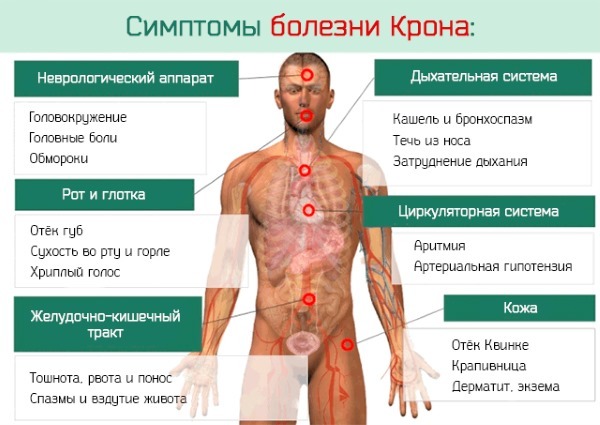
It was also found that a high level of C-reactive protein is present in patients with Crohn's disease and ulcerative colitis.
When tired
With frequent fatigue, the stress hormone in the body increases, systemic inflammation develops, and the amount of CRP in the blood rises. With periodic fatigue, C-reactive protein does not increase or increases slightly, and then returns to normal.
With depression
Depression leads to the development of systemic inflammation in the body. At the same time, the presence of inflammation can cause depression due to the deterioration of the functioning of organs, in particular the intestines. Also, high levels of C-reactive protein were diagnosed in people with depression who were obese.
For macular degeneration
Macular degeneration is often caused by ischemia of the retina due to vasoconstriction. The vasoconstriction occurs due to the development of inflammation in them, due to which the CRP in the blood of patients is slightly increased.
With dementia
Dementia or senile dementia in most cases develops against the background of general inflammation in the body associated with atherosclerosis, high levels of LDL and VLDL, triglycerides in the blood. Older people with dementia have high levels of C-reactive protein.
With cancer
Very often, cancerous tumors develop as a result of chronic inflammation in the tissues of the organs. 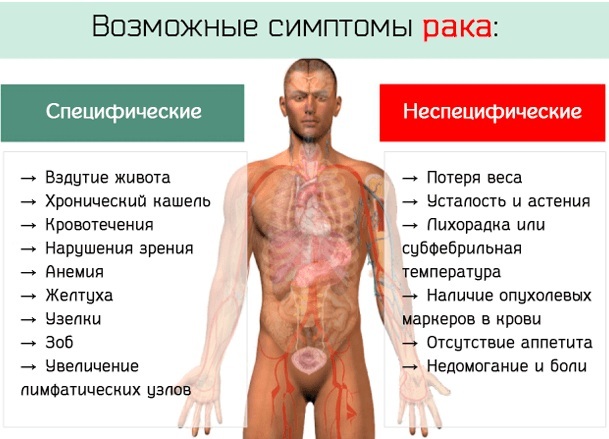 Also, high CRP levels may be associated with tumor growth. Too high, off-scale concentration of CRP indicates metastases.
Also, high CRP levels may be associated with tumor growth. Too high, off-scale concentration of CRP indicates metastases.
Gender and age-related causes of increased CRP
In women, men and children, there are separate reasons for the increase in the level of CRP in the blood. However, some of the reasons are temporary and associated with human physiology.
Among women
In women, C-reactive protein may be elevated for the following reasons:
- menstruation (with bleeding, CRP temporarily increases slightly, and returns to normal after menstruation);
- pregnancy;
- inflammatory pathologies of the genitourinary organs;
- malignant tumors.
In men
In men, an increase in CRP can be caused by prostatitis or malignant prostate disease. Since men are more at risk for cardiovascular disease, a high amount of CRP in the blood may indicate atherosclerosis and a high risk of stroke.
In children
In childhood, an increase in CRP is possible for the following reasons:
- infectious and inflammatory diseases of the respiratory tract;
- intestinal infection;
- parasitic infections (giardiasis, ascariasis, enterobiasis).
Factors that increase C-reactive protein levels
An increase in C-reactive protein in the blood can cause unhealthy lifestyles. The reason for this may be smoking, lack of sleep. Also, hormonal disruption in the body can cause an increase in the concentration of CRP.
Sleep disturbance
With a violation of circadian rhythms and lack of sleep in the body, the amount of substances that cause inflammation and, consequently, an increase in CRP protein increases. Daytime sleep in adulthood and old age can also cause this condition.
Smoking
Smoking causes a number of conditions that increase CRP levels:
- atherosclerosis (and an increased risk of stroke);

- obesity;
- cancerous tumors;
- lung diseases (chronic bronchitis, obstructive pulmonary disease).
Saturated fatty acids and trans fats
The predominance of fatty acids and trans fats in the diet leads to the adhesion of low and very low density lipoproteins to the walls of blood vessels, causing atherosclerosis and inflammation on the walls. Also, the abundance of trans fats in the diet is the cause of chronic inflammatory processes throughout the body, leading to an increase in CRP levels.
Vitamin deficiency
Deficiency of vitamins (especially A, C, E, D and K) leads to chronic inflammation in the intestinal walls and a slight increase in CRP in the blood.
Stress
Stress, especially chronic stress, leads to conditions in which CRP is elevated. With constant fatigue, emotional instability and depression, the number of markers of inflammation in the blood increases.
Socio-economic factors
DRR is elevated (causes should be addressed as soon as possible) in people living in poor areas or with low incomes. In some cases, these causes cause chronic stress, depression and the development of an inflammatory response in response to this.
In other cases, an increase in C-reactive protein in the blood can cause the situation in the place of residence: relations with neighbors, the improvement of the area, the level of crime.
Substance abuse (drug addiction)
The level of C-reactive protein in the blood always slightly increases after drinking alcohol, as well as after smoking nicotine, marijuana and other drugs. 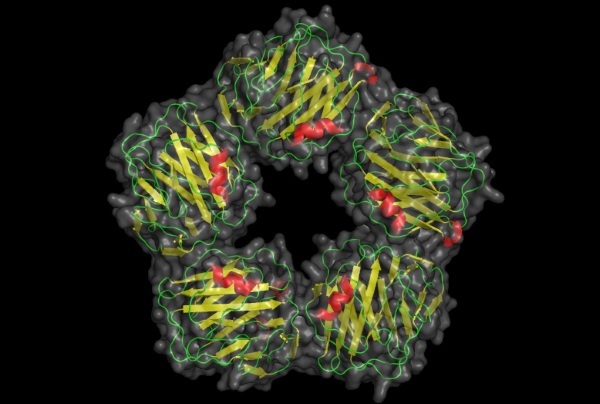 People who have been taking drugs for a long time are diagnosed with inflammatory pathologies of internal organs.
People who have been taking drugs for a long time are diagnosed with inflammatory pathologies of internal organs.
Height above sea level
The higher the altitude, the higher the amount of CRP in human blood. This is due to the fact that with an increase in atmospheric pressure and a decrease in the amount of oxygen in the blood, an increase in C-reactive protein in the blood and the development of systemic inflammation occur.
Extreme cold
In extreme cold, narrowing of the blood vessels occurs, which causes an increase in pressure in them. At air temperatures below 0 ° C, the concentration of CRP in the blood increases slightly and increases in direct proportion to the decrease in air temperature.
Hormones
The human body contains hormones that affect the increase in the amount of C-reactive protein in the blood:
| Leptin | The hormone leptin regulates energy metabolism in the body. The higher the amount of leptin in the body, the higher the amount of CRP. |
| Estrogen | High levels of estrogen in the blood lead to an increase in CRP levels. Therefore, women taking hormone replacement therapy (oral contraceptives) often have too high CRP levels in the blood due to an inflammatory process in the walls of blood vessels. |
| Melatonin | Melatonin is a sleep hormone that causes insomnia and other disturbances when it is lacking. Because of this, the level of inflammation in the body rises and the amount of CRP increases. |
Treating high CRP with drugs
With a high value of C-reactive protein in the body, it is first of all necessary to eliminate the cause of the inflammation. Also, in this condition, the following groups of drugs are used to help reduce the level of inflammation, eliminate the reasons for its development and a decrease in the amount of CRP in the body:
-
Non-steroidal anti-inflammatory drugs (NSAIDs) - stop the acute inflammatory process in the body. The names of the funds: "Aspirin", "Nise", "Celecoxib".
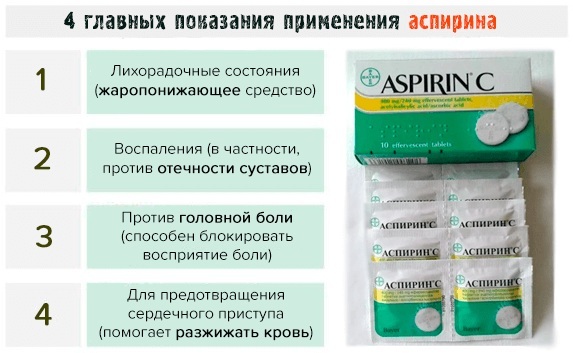
- Platelet aggregation inhibitors - prevent platelet aggregation and the development of blood clots in blood vessels (thereby reducing the risk of ischemia and strokes). The names of the funds: "Plavix", "Clopidogrel".
- Drugs that lower the level of "bad" cholesterol in the blood - capture and remove from blood vessels LDL and VLDL, prevent the absorption of cholesterol in the intestine. The names of the funds: "Atorvastatin", "Rosuvastatin", "Ezetimibe".
- Vitamin complexes - eliminate the deficiency of vitamins, help to reduce the level of systemic inflammation in the body. With a high level of CRP in the body, vitamins A, C, E, D and K are needed - separately or in combination.
Additionally, drugs are used to treat arterial hypertension, diabetes, metabolic disorders.
An increase in C-reactive protein in the blood indicates the presence of an inflammatory process in the body (acute or chronic). The reason for this may be any illness or lifestyle with a predominance of bad habits, stress and sleep disturbances.
Video about CRP
C-reactive protein is elevated in the blood. Causes:

